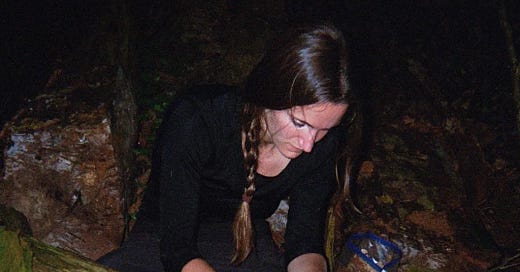Chimpanzees Self-Medicate with Healing Plants
The Chimps Seek Out Unappetizing Plants with Medicinal Value, Providing Insights for Human Medicine
Wild chimpanzees in Uganda have been observed consuming plants with pain-relieving and antibacterial properties to heal themselves, according to a recent study. This discovery not only highlights the chimps' sophisticated use of natural resources but also opens potential pathways to novel human medicines.
Observing Self-Medication in the Wild
Scientists c…
Keep reading with a 7-day free trial
Subscribe to Primatology.net to keep reading this post and get 7 days of free access to the full post archives.



